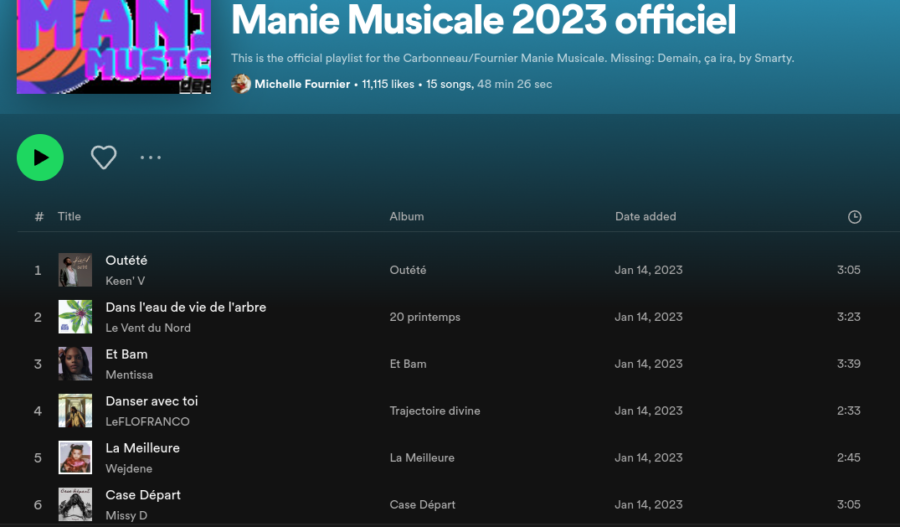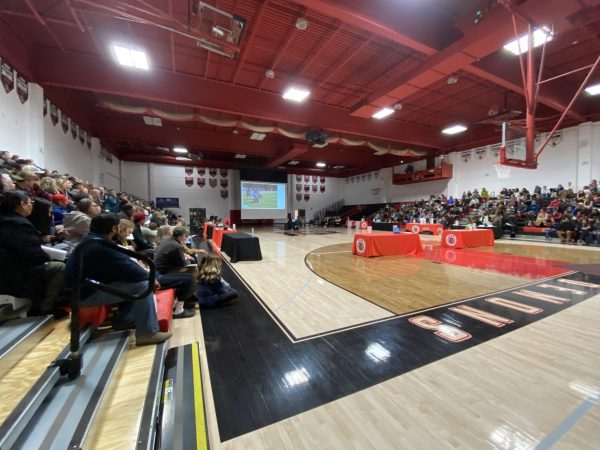LeFLOFRANCO Is Victorious
Manie Musicale
Manie Musicale is an annual event similar in structure to March Madness. However, instead of basketball teams, songs from all over the francophone world are pitted against each other in a series of 15 matchups. At the beginning of March, students fill out a bracket with their predictions of the winners. Then as the month progresses, more than 100,000 French students from 4,000 schools around the globe, including DHS, vote for the winners.
Puis-je danser avec toi?
Danser avec toi by LeFLOFRANCO came up victorious, as most French students could tell you. The music video is filled with saucy tango and romantic imagery. The song is about dancing with someone you love. “LeFLOFRANCO is an emerging artist from the Ottawa-Gatineau region. Of Haitian origin, it was in Paris that he was born but it was in the national capital that he mostly grew up.” His goal is to make music that is universal to a multitude of audiences, including anglophones. He would call his sound, “multi-colored urban pop”. From the artist’s website.
Meet The Competition
Other than LeFLOFRANCO, many other favorites emerged among our French students.
“PLUS FORTE [by Julien Granel] was the best,” said Xavier Lopez. The title translates to “Stronger”. The song is upbeat and its production stands out from many of this year’s Manie Musicale contestants. Unfortunately, it fell out of the competition in the first round, which tragically coincided with spring break.
Then there was Case Depart by Missy D. It was beloved by many, especially the French teacher, Madame B. She was greatly disappointed to get back from spring break to find that Missy D had been knocked out by Keen’V’s song Outété. One particular line of Case Depart caught students’ attention, “Let me drop some French and some English too!”. This was hilarious to an audience that can pretend to rap in English, but mostly can’t do as much in a second language.
3615 Bonheur by Soprano was also a conversation starter. The song references Minitel, France’s version of dial-up internet. In the song, Soprano dials up the internet to find happiness. Charles Halverstadt couldn’t help but point out, “It’s a very upbeat song for depressed lyrics.” Nowadays, surfing the internet and social media are accompanied by much more nuanced and sometimes painful emotions. Luckily, the cheesy, major-note, music video can mostly compensate for the irony.
Conclusions
Listening to songs performed in other languages is a great way to expand your lingual bubble and get an idea of the natural flow and cadence of the language. Unfortunately, francophone artists don’t hit the charts as frequently as Latin ones do. The competition is a great opportunity for students to fall into a rabbit hole that they might not have otherwise known existed.









